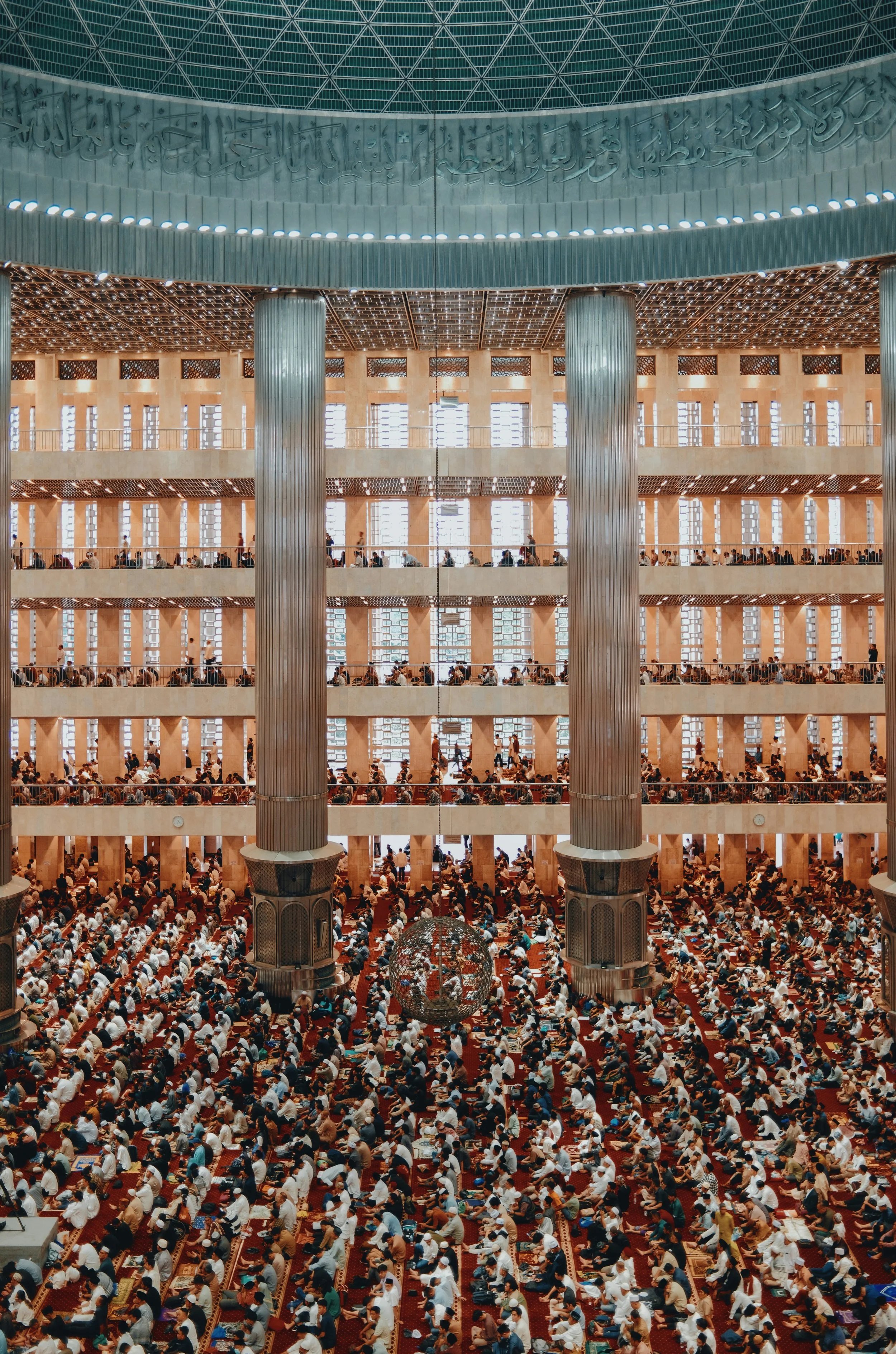OPINION: Life is a team sport and it is time we played it like one
Handing out zakat (charity) to the poor (Credit: Masjid Pogung Dalangan)
Wajid Akhter
In delivering our programmes and initiatives, Civil Society Consulting work closely with East London Mosque, London Muslim Centre and many Muslim led voluntary, community and social enterprise organisations across the country. We have a strong, established and collaborative relationship with the Muslim Council for Britain (MCB) and Zara Mohammed, former Secretary General of the MCB, delivers leadership and training on our programmes. As part of Steps to Togetherness we invited current Secretary General, Dr Wajid Akhter to write an article for us on the power of community from an Islamic perspective. We urge our readers to share his powerful message of togetherness and social solidarity:
Islam and the answer to hyper-individualism
Trevor Noah was on a podcast recently and made a remark that hit home despite not being funny. The young biracial South African comedian mentioned that he believed that as a country becomes more developed, it does so at the expense of the community. You are told that you don't need the village anymore, that you could move to the city and earn many times more money by cutting off your connections to all around you. However, sure enough, in order to survive in the city, you needed to hire a nanny to look after the children, a personal trainer to keep you fit, a counsellor to keep you sane, and so on. You end up spending the money you have buying back the village and community you abandoned.
It is a mark of how far we have fallen as a society, that some of the most cogent truth-tellers in society today are our comedians.
As we feel society fragmenting, aided by social media and rampant capitalism, many are searching for solutions to stitch it back together. The language of “burnout” and “loneliness epidemics” is no longer confined to niche think tanks, it is everyday reality.
I posit that by leaning into Islamic culture, beyond the biryanis and holiday destinations, we may find unexpected answers for people of all faiths and none.
The illusion of the self-sufficient individual & reframing that
The myth of the “self-made” man or woman is one of modernity’s greatest illusions. It is being pushed everywhere through initiatives like hustle culture, self-help courses and a society that worships the self over and above the collective.
The truth, unsurprisingly, no one truly thrives in isolation, but contemporary society seems to glorify autonomy whilst quietly outsourcing the functions of community. The end result is not freedom, but exhaustion, isolation and a rapid deterioration in mental health.
Islam approaches the human condition from a different angle. The Qur’an consistently reminds believers that human beings are created weak and in need, not only of God but of one another. Life is not meant to be a solitary pursuit of self-actualisation, but a web of obligations and mutual care and your true self worth is measured in your service to others. "The best of people is the most beneficial to the rest of mankind," is a well known saying of the Prophet Muhammad (ﷺ.)
Inside a mosque (Credit: Alim)
Community as the default
The Prophet Muhammad ﷺ described the Muslim community as one body: if one part is in pain, the whole body responds with fever and sleeplessness. This metaphor does not allow for atomised, disconnected lives. It assumes a collective identity where individual flourishing is inseparable from collective well-being.
This is embedded in Islamic practice. Daily prayers are best performed in congregation, binding neighbours together five times a day. Obligatory charity (zakat) is structured redistribution of wealth, ensuring wealth circulates rather than accumulates. Even funerals are a community duty, reminding people that dignity in death is not left to chance or money but guaranteed through the care of others.
A culture of mutual responsibility
The culture of mutual responsibility is woven into the very infrastructure of the community. Endowments (awqaf) funded schools, hospitals, fountains, and shelters are funded not for profit, but as acts of perpetual charity. This replaces hustle culture with barakah (blessings) culture as written about by the author Mohammed Faris.
In contrast to hyper-individualism, Islam makes interdependence explicit. It affirms rights and responsibilities: parents are owed care, neighbours are owed kindness, the poor are owed wealth, and the oppressed are owed solidarity. This is subtly different to a truly socialist society. Private enterprise is not only tolerated but encouraged, but there are cultural limits that are put on profiteering that can often work better than strict rules that are not contextual to changing times and circumstances. In a truly Islamic society, Gordon Gecko would struggle to make the case that greed is good.
It goes beyond this in many ways. Hyper-individualism is actively discouraged and called against. Another saying of the Prophet exemplifies this when it comes to food inequalities, "He is not a believer whose stomach is filled while his neighbour goes hungry."
Reclaiming the village
Trevor Noah was right: modernity tricks us into selling the village, then buying it back at inflated rates. But perhaps the answer is not nostalgia or cynicism. Perhaps it is recalibrating the relationship between the individual and the collective and by changing the narrative to laud selflessness. Too often today, this field is left to nationalists and populists, explaining the search for belonging (indeed, for community) being intertwined with the rise of movements that are profoundly anti-libertarian at their core.
Islam, when implemented properly, provides not just an alternative set of beliefs but a civilisational blueprint for how to do this, regardless of your personal feelings on the Islamic faith. There are precious few things to envy about the Muslim world at the current time, but amongst the few, are the strong sense of community developed right across the world. The concept of the "Ummah" is not only powerful, but it is empowering. It means that a community under such immense pressure worldwide as ours, is able to go through unimaginable suffering, and still believe that there is hope for a better tomorrow, that we are not alone and that our story is part of a wider epic.
In an age of rented companionship, subscription-based commodities, and purchased belonging, Islam reminds us that life is a team sport and it is time we played it like one.




